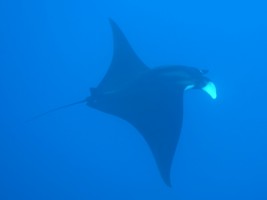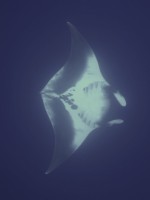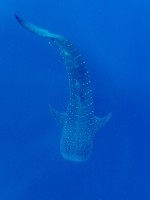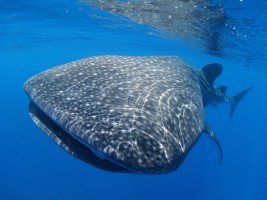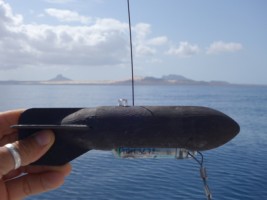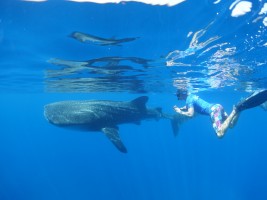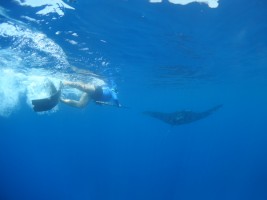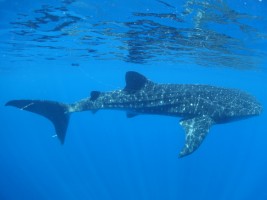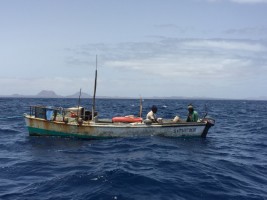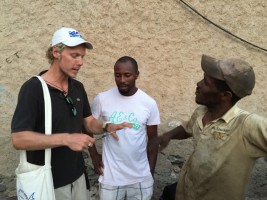Community monitoring and conservation of megaplanktivores in Cape Verde
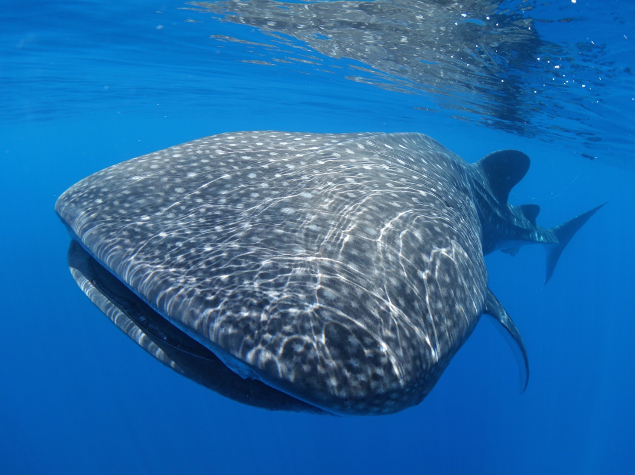
Cape Verde’s isolation and lack of natural terrestrial resources have driven the exploitation of its marine species by small-scale artisanal fisheries for the last 500 years. Recent unsustainable development for ‘package tourism’ and the expansion of both small-scale fisheries and large-scale industrial fishing to meet development and foreign exchange needs have greatly increased the threat to a range of marine wildlife, including the threatened megaplanktivores the sea’s largest ray, the Oceanic Manta rays (Manta birostris) and the world’s largest fish, the Whale sharks (Rhincodon typus).
The recent expansion of industrial fishing also appears to have a substantial impact on fish stocks and is adversely affecting the local artisanal fisheries through increased incursions into shallow coastal waters. Such factors have threatened to marginalize local communities and negatively affect the local environment that underscore the need for both pragmatic and sustainable options.
Cape Verde could play a significant global role in the development and survival of a large number of elasmobranchs species across varying life-stages. Yet the veritable lack of scientific knowledge of megaplanktivores and other species of elasmobranchs in the Eastern Atlantic further underscores the need to undertake research and conservation efforts in this zone.
MarAlliance goal is to secure the conservation of megaplanktivores in Cape Verde’s waters. It aims also to engage and build the capacities of community members to monitor megaplanktivores and meaningfully participate in the country’s growing tourism.
To do so, various sub-objectives have been planned:
1 – Identify the legislative, institutional, political and socio-economic context that underpin marine wildlife management and conservation in Cape Verde and assess which levels to engage for optimal conservation leverage of megaplanktivores.
2 – Conduct standardized boat and fisher surveys with traditional fishers on a monthly basis to identify seasonality or permanence of megaplanktivores aggregations throughout the Cape Verde archipelago. When it is possible, take identification pictures of whale sharks and manta rays to contribute to the global database for these species and develop population estimates.
3 – Deploy Smart Position Only satellite Tags (SPOT) on 8 animals (4 whale sharks and 4 oceanic manta rays) to track their movements, reveal their spatial ecology and identify patterns of habitat use and connectivity with other sites.
4 – Raise awareness for marine wildlife, their critical habitats and sustainable fishing practices and improve marine education in communities to help bring megaplanktivores and identified critical habitats under community supported protection.
5 – Identify with fishers possible income diversification strategies to reduce pressure on near-shore fisheries, and further identify socially acceptable entry points into megafauna encounter tourism.
6 – Facilitate the dialogue between fishers, the private sector and Government Environmental institutions to foster effective management and a conservation ethos for sharks and rays as well as synergies for establishing a community-led megafauna tourism.
7 – Work with Government agencies and other partners from all key sectors (NGO, private, academic, fisheries and fishers) to create a shark advisory committee through which all aspects pertaining to elasmobranchs are reviewed and brought to government for management of conservation action.
8 – Evaluate project success and develop a plan and concomitant proposals to scale up fisher engagement, outreach and elasmobranch monitoring activities to encompass the Cape Verde archipelago.
Final summary report (March 2017):
During the period supported by Fondation Ensemble, MarAlliance team notably:
- Led 12 study trips to look for and study megaplanktivores.
- Registered 35 individuals (whale sharks and manta rays) to be uploaded to established data bases.
- Deployed 10 tags.
- Trained 12 fishers and conservation colleagues in megafauna monitoring techniques. They are engaged in the process of developing country’s first National Plan of Action for Sharks.
Furthermore, the NGO team led various meetings and workshops with the fishers and government representatives to study the setting up of a sustainable fishery. They also made aware 500 pupils during 10 session in local schools on the importance of maintaining marine life.
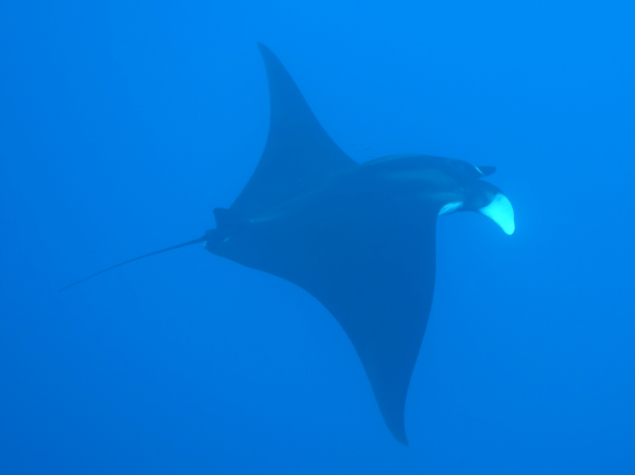
Manta ray © Rachel Graham/MarAlliance
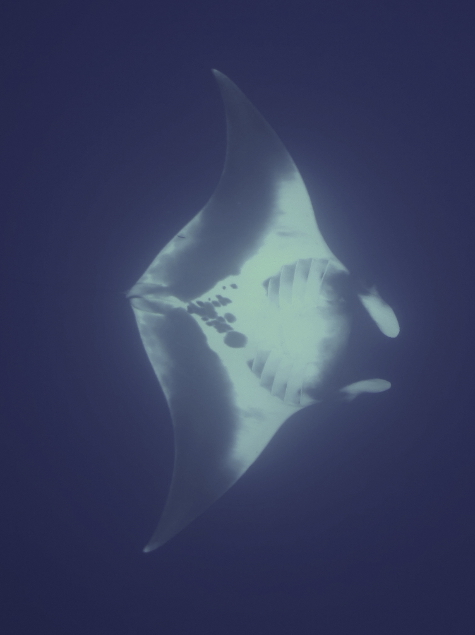
Manta ray © Rachel Graham/MarAlliance
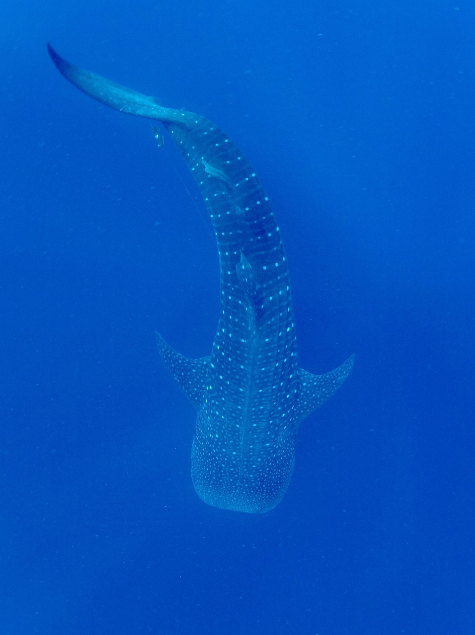
Whale shark © Rachel Graham/MarAlliance

Whale shark © Rachel Graham/MarAlliance
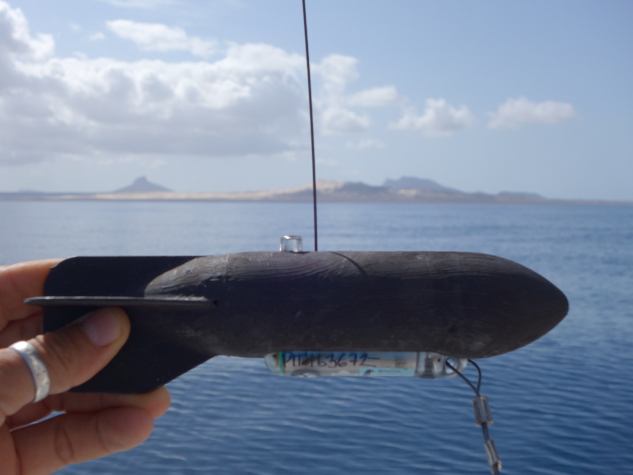
Smart Position Only satellite Tag or ‘SPOT’ - Rachel Graham/MarAlliance
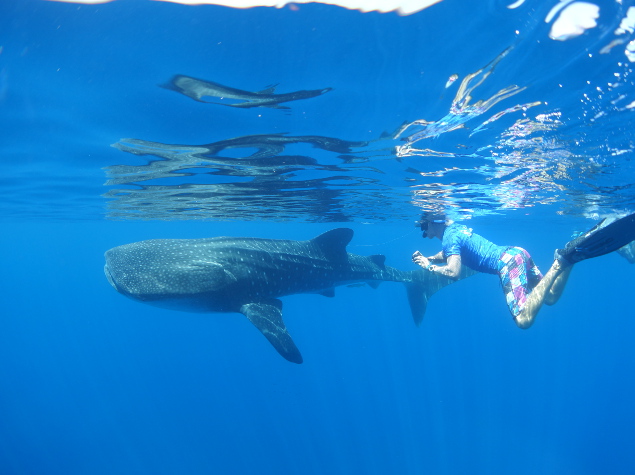
Rachel Graham/MarAlliance
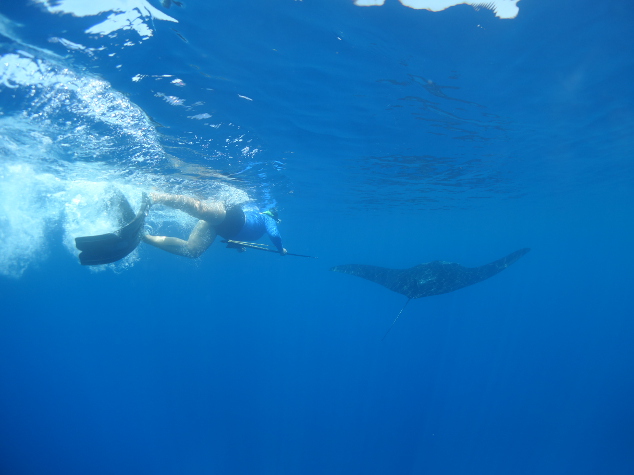
Rachel Graham/MarAlliance
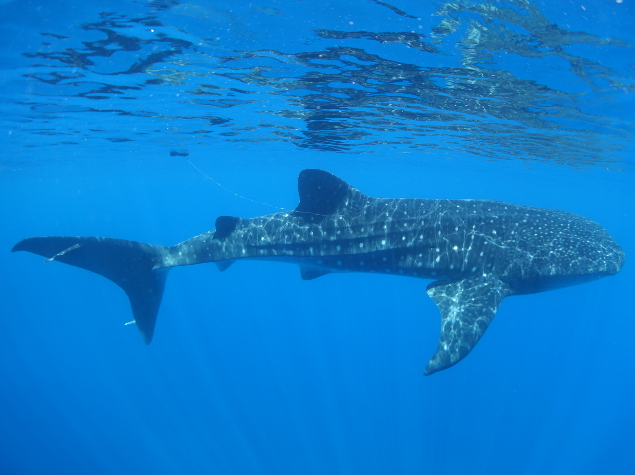
Whale shark with a satellite tag above the sea level - Rachel Graham/MarAlliance
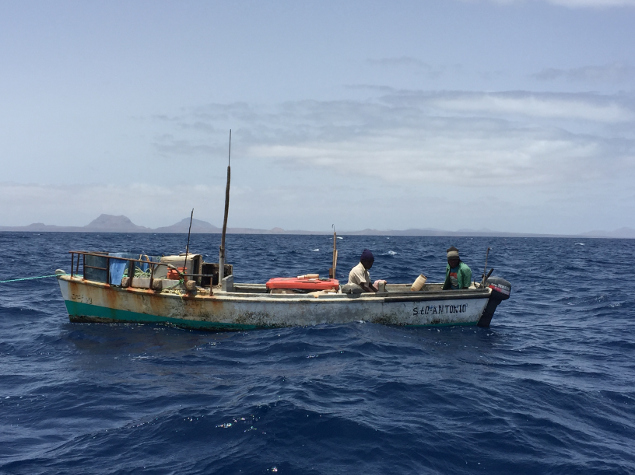
Rachel Graham/MarAlliance
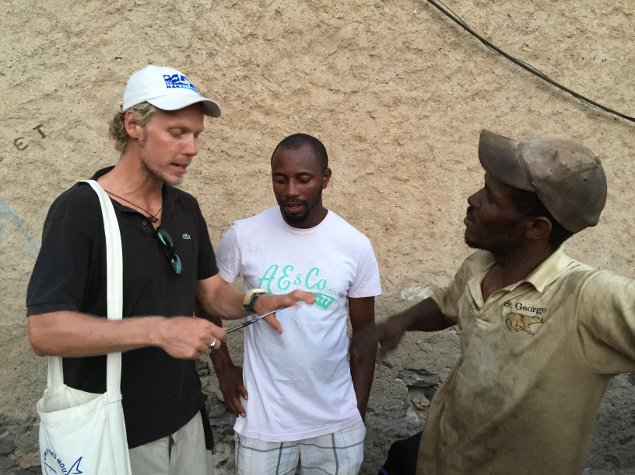
Rachel Graham/MarAlliance
